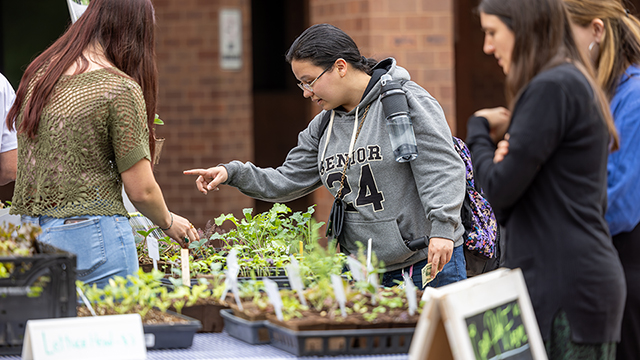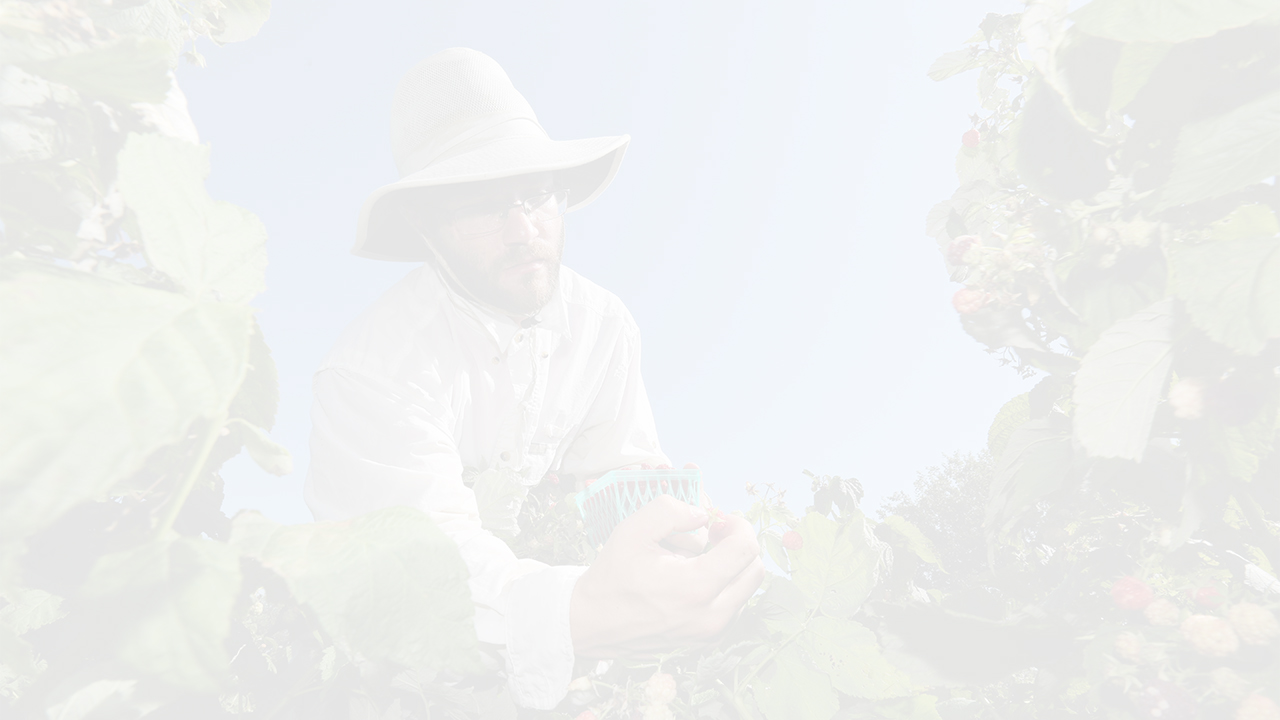You make JCCC a sustainable campus—thank you!
As we strive to balance our environmental, economic and social goals, JCCC is developing even more resilient systems that will endure into the future.
The Association for the Advancement of Sustainability in Higher Education (AASHE) works with higher education institutions to ensure that students, educators, and future leaders are empowered and equipped to handle sustainability challenges of the present and future.
 As of May 2025, Johnson County Community College has earned a STARS Gold rating in recognition of our sustainability achievements and long-term sustainability goals. With more than 1,200 participants in 52 countries, AASHE’s STARS program is the most widely recognized framework globally for publicly reporting comprehensive information related to sustainability performance in higher education. Participants report data in five overall areas:
As of May 2025, Johnson County Community College has earned a STARS Gold rating in recognition of our sustainability achievements and long-term sustainability goals. With more than 1,200 participants in 52 countries, AASHE’s STARS program is the most widely recognized framework globally for publicly reporting comprehensive information related to sustainability performance in higher education. Participants report data in five overall areas:
- Academics
- Engagement
- Operations
- Planning and Administration
- Innovation and leadership.
9 Things JCCC Has Done to Become a Sustainable Campus

JCCC’s AASHE STARS Gold rating reflects over a decade of innovation, collaboration, and commitment towards a shared goal.
So how did we go from goals to Gold? Check out these initiatives our campus has introduced to make sustainability a priority in student and community operations.
Our original goals include:
- Students experience sustainability in curriculums, engage in green practices on and off campus and combat food insecurity through discussions and participation at the Open Petal Farm.
- JCCC to become a zero-waste-to-landfill campus by 2025, a 100% renewable-energy campus by 2050, and reduce its carbon footprint, energy and water use.
- JCCC and the Community to increase engagement sustainability initiatives, implement a sustainable transportation plan, increase community partnerships, measure and monitor social, environmental and economic sustainability metrics and performance indicators, resulting in a Gold designation from the Association for the Advancement of Sustainability in Higher Education (AASHE).
The College has achieved these goals by:
- Creating an incentive for students to enroll in Sustainable Agriculture through the Sustainable Agriculture Scholarship.
- Implementing a $1-per-credit-hour student fee to finance ideas tied to the Sustainability Initiatives Fund.
- Diverting 50% of JCCC waste by 2016.
- Achieving 15% of renewable energy by 2020.
- Earning the Silver designation in our 2019-2020 reporting period from the AASHE.
- Earning the Gold designation in our 2024-2025 reporting period from the AASHE.
Sustainability Awards and Recognitions
JCCC has won dozens of national awards for its sustainability efforts.
- 2025 – STARS Gold rating from the Association for the Advancement of Sustainability in Higher Education
- Four-time Recipient of the Mid America Regional Council’s Sustainable Success Stories Award (last in 2024).
- 2021 - Director honored with Lifetime Achievement Award by the Climate + Energy Project in Hutchinson, Kansas
- 2021 - Champion of Sustainability Award by the American College Personnel Association
- 2019 - Top 10 Performer in AASHE's 2019 Sustainable Campus Index
- 2019 - Sierra Club's Cool Schools in North America
- 2019 - 10-year agreement to offset energy production
- 2017-2021 - STARS Silver rating from the Association for the Advancement of Sustainability in Higher Education
Sustainability Reports
- AASHE Campus Report – February 2022 AASHE Report - In June 2017, JCCC completed the requirements to be rated by the Association for the Advancement of Sustainability in Higher Education (AASHE).
- AASHE also named JCCC a Top Performer in the 2019 Sustainable Campus Index. JCCC boasts the No. 10 spot overall among associate college institutions and No. 6 in the United States.
- After JCCC’s ongoing and continued improvements in campus-wide sustainability, AASHE awarded JCCC with a Gold STARS rating in May, 2025.
Sustainability Statistics
Recycling Statistics
- 64% materials at JCCC were kept out of the landfill, a process known as waste diver
- $358,542 has been earned from recycling revenue since 1994 and used for student scholarships.
- JCCC saved $426,539 between 2010 and 2024 by reducing the amount of trash hauled and reducing the amount of landfill.
- From 2010 to 2024, waste to landfill at the College went down while recycling went up.
- From 2010 to 2024, trash hauling costs went down by 52% and recycling revenue went up.
Composting Statistics
- 978,823 pounds of food waste has been composted since 2011—enough to feed 489 Americans for a year!
- 321,760 pounds of wood waste has been recycled since 2011—the amount of wood it takes to build four 2000 sq ft homes.
- Over $13,000 worth of compost has been created for use on the campus farm since 2011.
Visit the composting dashboard
Energy Statistics
- More than $12 million has been saved since 2008 on purchased electricity lowering annual electricity usage by 44%.
- JCCC Electrical usage has decreased by 2.2% average per year since 2008.
- Carbon emissions have decreased by 76% between 2009-2024.
Noel-Levitz Survey Data
- JCCC student responses have indicated increasing importance in our successful sustainability work.

